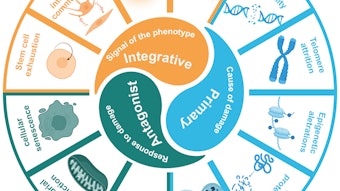
Formulators and manufacturers of hair care products and other fragrance-containing products could see changes to VOC limits.
In an alert issued to the industry on March 10, 2020, the Independent Cosmetic Manufacturers and Distributors (ICMAD) group explained that CARB and the Department of Toxic Substances Control (DTSC) have been engaging directly with the ICMAD as they are considering changes to VOC regulations for cosmetic and personal care product categories.
CARB held a pubic work group, also on March 10, to update stakeholders on their current thinking with respect to the proposed VOC limits. The categories currently under review are hair care and fragrance. The slides from the work group presentation are available to ICMAD members on the group website (login required).
Proposed Changes
A January 22, 2020, report by the group Chemical Watch outlined some of the changes under consideration, originally proposed by CARB in November 2019, which would come into effect in 2023. These include, among others:
- Hair finishing sprays—reducing the current 55% limit to 50%, which would drop to 45% in 2027;
- Dry shampoos—with a new 50% limit that would lower to 45% by 2027;
- Personal fragrance products (i.e., those with 20% or less fragrance)—would drop from 75% to 65%, and further to 50% in 2027;
- Manual air fresheners—reducing the current allowable volume by at least half to a 10% VOC limit, with a further reduction to 5% by 2027; and
- Sunsetting the existing 2% fragrance exemption by 2027.
Also identified were candidates for potential future changes, including:
- Antimicrobial dry hand washes (hand sanitizers);
- Aerosol sunscreens; and
- Antiperspirants and deodorants.
Taking Action
An essential takeaway for ICMAD members was that CARB gets the most done and feels it receives the most helpful information when companies engage directly. As such, ICMAD encourages those concerned about the business impacts of reducing VOC limits in California to contact CARB, so the group understands the impact to all stakeholders. The more data provided about reformulation feasibility, actual cost of reformulation and the practical implications, the more informed their rule-making process will be.
- Ongoing: Meet with interested stakeholders
- April 14, 2020 (tentative): Next Public Workshop
- Spring to Mid-Summer 2020: Additional public meetings to further refine regulatory proposals
- Late 2020: Proposed regulatory amendments for Board consideration
Follow us as we continue to monitor the proposed changes. For more information, visit the ICMAD website.










